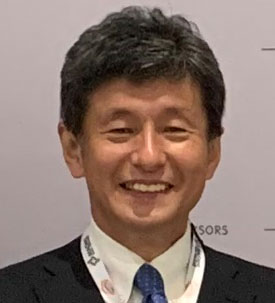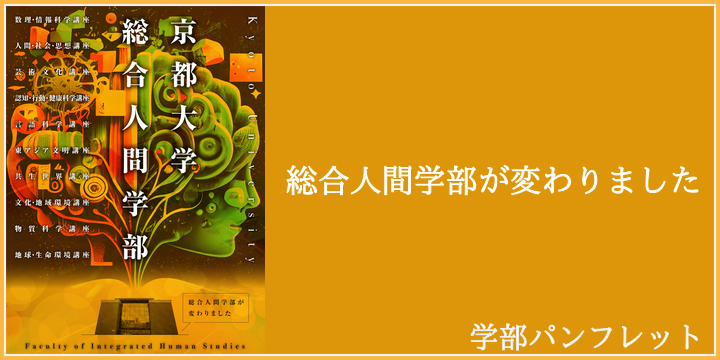UCHIMOTO, Yoshiharu Professor
| Graduate School | Human and Environmental Studies/Materials Science |
|---|---|
| Undergraduate School | Materials Science (Division of Natural Sciences) |
| Other Affiliation | |
| uchimoto.yoshiharu.2n _at_ kyoto-u.ac.jp (Raplace _at_ with @-mark) | |
| Personal Page | Website Additional Information |

| Research areas | Electrochemistry, Energy Chemistry, Batteries, Fuel cells, Hydrogen energy, Green innovation, Energy Systems |
|---|---|
| Keywords | Electrochemical Energy Conversion, Electrochemical Devices, High Energy Density Batteries, Polymer Electrolyte Fuel Cells, Water Electrolysis, Advanced Analysis Techniques |
| Themes | Our resent work is focused on electrochemical energy storage and conversion devices, including lithium ion batteries, post lithium ion batteries, proton exchange membrane fuel cells and water electrolysis. Over the last decade, we promoted many research projects supported by various companies and Japanese governments. We offer research opportunities for students interested in electrochemistry ! Electrochemistry is a field of chemistry that deals with chemical phenomena involving electrons and ions. An electrochemical cell consists of two electrodes and an electrolyte that exists between the two electrodes. The reaction occurs at the interface between the electrode and the electrolyte, as shown in the figure. This electrochemical cell can be used to convert electrical and chemical energy with high efficiency. Electrochemical devices, such as lithium-ion secondary batteries and fuel cells, are expected to play a major role in solving environmental and energy problems in the future, such as power supplies for vehicles and other mobile media, and their use in the full-scale spread of smart grids. In this laboratory, based on electrochemistry, we are developing new functional materials, elucidating reactions, and improving the performance of electrochemical devices based on the development of new functional materials, based on inorganic and organic functional material chemistry, energy chemistry, and other fields. The main research themes are as follows Post Lithium Ion Secondary Battery We are developing fluoride ion batteries as rechargeable batteries with high volumetric energy density. We have developed cathode materials for all-solid-state fluoride ion batteries that utilize the intercalation of fluoride ions and promoted research using metal cathodes, achieving an energy density more than three times that of current lithium ion rechargeable batteries. In addition, all-solid-state lithium-sulfur batteries, which use lithium metal for the anode, sulfur for the cathode, and sulfide-based solid electrolyte electrolytes as the electrolyte, are expected to be a battery with high gravimetric energy density. We have clarified the cause of lithium dendrite growth using X-ray absorption spectroscopy and X-ray CT measurements performed at a synchrotron radiation facility and combined it with a newly developed sulfur cathode. Polymer Electrolyte Fuel Cells The polymer electrolyte fuel cell (PEFC) is a device that directly generates electricity through a chemical reaction between hydrogen and oxygen, and is expected to become widely used as a power source for automobiles and distributed power sources for home use. We are actively working on structural analysis of catalysts under operating conditions (operando) to clarify the relationship between catalytic activity and structure, and to develop electrocatalysts with high activity and durability. We are also investigating the behavior of water under fuel cell operating conditions using synchrotron radiation. Water Electrolysis To build a hydrogen society, it is essential to supply large quantities of hydrogen efficiently and inexpensively at a rate that can meet modern energy consumption. In water electrolysis, oxygen evolution reaction (OER) occurs at the anode and hydrogen evolution reaction (HER) occurs at the cathode; OER is slower than HER because it involves four electrons, which reduces the overall efficiency of electrolysis. We have developed analytical methods for the OER activity and durability of alkaline water electrolysis and polymer electrolysis catalyst materials, mainly operando X-ray absorption spectroscopy, and combined them with electrochemical measurements to investigate the oxidation state of transition metals, electronic structures such as hybridization states of transition metal d orbitals and oxygen 2p orbitals, high-energy X-ray We are developing methods to dynamically analyze catalytic behavior by making full use of diffraction and two-body correlation function analysis. Furthermore, by clarifying the correlation between catalytic properties and electronic structure, we are developing new OER catalysts based on an intrinsic understanding of the reaction mechanism. |
| Major publications | Oxyfluoride Cathode for All-solid-state Fluoride-ion Batteries with Small Volume Change Using Three-dimensional Diffusion Paths, Chem. Mater. , 2022, 34, 23, 10631–10638 State of the Active Site in La1–xSrxCoO3−δ Under Oxygen Evolution Reaction Investigated by Total-Reflection Fluorescence X-Ray Absorption Spectroscopy, ACS Applied Energy Materials, 2022, 5, 4108 – 4116 Fast fluoride ion conduction of ¬NH4(Mg1-xLix)F3-x and ¬(NH4)2(Mg1-Lix)F4- assisted by molecular cations, Scientific Reports, 2022, 12, 5955 Multiscale and hierarchical reaction mechanism in a lithium-ion battery, Chemical Physics Reviews, 2022, 3, 1, 011305 Anion substitution at apical sites of Ruddlesden–Popper-type cathodes toward high power density for all-solid-state fluoride ion battery, Chemistry of Materials, 2022, 34, 2, 609 – 616 High Rate Capability from Graphite Anode through Surface Modification with Lithium Iodide for All-solid-state Batteries, ACS Appl. Energy Mater., 2022, 5, 1, 667 – 673 Reversible and Fast (De)fluorination of High-capacity Cu2O Cathode: One Step Toward Practically Applicable All-solid-state Fluoride-ion Battery, Adv. Energy Mater., 2021, 11, 2102285 Rate-determining Process at Electrode/electrolyte Interfaces for All-solid-state Fluoride-ion Batteries, ACS Appl. Mater. Interfaces, 2021, 13, 25, 30198 – 30204 Tomographic reconstruction of oxygen orbitals in lithium-rich battery materials, Nature, 2021, 594, 213 – 216 |
| Professional societies/Research and synergic activities | FY2023 Fellow of Electrochemical Society of Japan, Advisor of Electrolytic Science and Technology Committee, Electrochemical Society of Japan, Secretary of Research Group for Exploring New Guidance in Solid State Chemistry, Chairman of Advanced Battery Technology Research Committee, Delegate of Solid State Ionics Society Academic Affiliations Electrochemical Society of Japan, Electrochemical Society of Japan, Battery Technology Committee, Electrochemical Society of Japan, Electrolytic Science and Technology Committee, The Electrochemical Society of Japan, Research Group for Exploring New Guiding Principles in Solid State Chemistry, The Chemical Society of Japan, Solid State Ionics Society of Japan, The Electrochemical Society, American Chemical Society, Solid State Ionics Society, etc. |
| Teaching Areas |
|
| Background | Education and academic qualifications 1985 Graduated, Faculty of Engineering, Kyoto University, Japan. 1985-1987 Master course, Graduate School of Engineering, Kyoto University, Japan. 1991 Ph. D, Kyoto University, Japan. Employment record 1987-1996 Research Associate, Graduate School of Engineering, Kyoto University, Japan. 1993-1995 Visiting Scholar, The Laboratory for Research on the Structure of Matter, University of Pennsylvania, USA. 1996 Associate Professor, Graduate School of Energy Science, Kyoto University, Japan. 2000 Associate Professor, Graduate School of Science and Engineering, Tokyo Institute of Technology, Japan. 2005 Associate Professor, Graduate School of Human and Environmental Studies, Kyoto University, Japan. 2007 Professor, Graduate School of Human and Environmental Studies, Kyoto University, Japan. |



